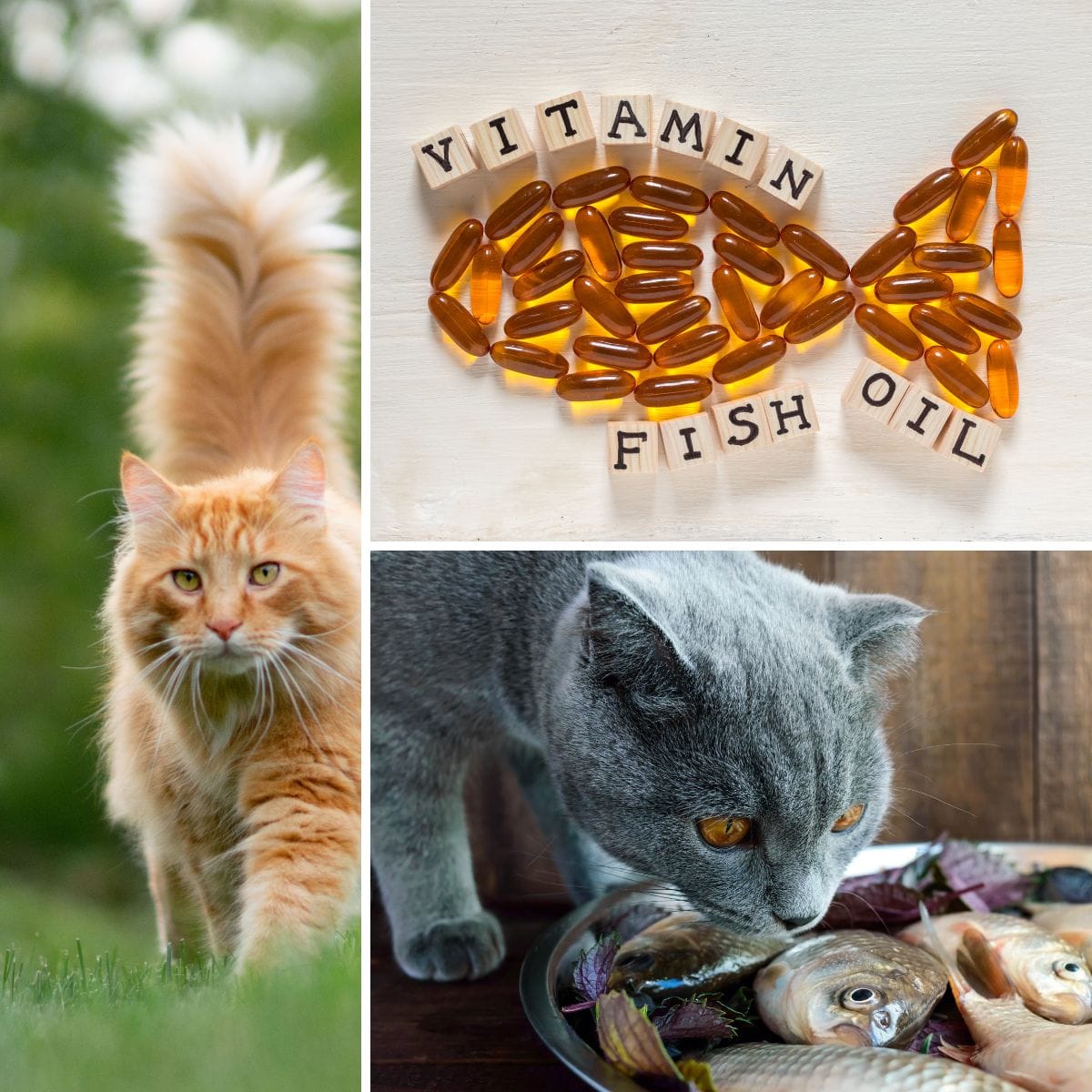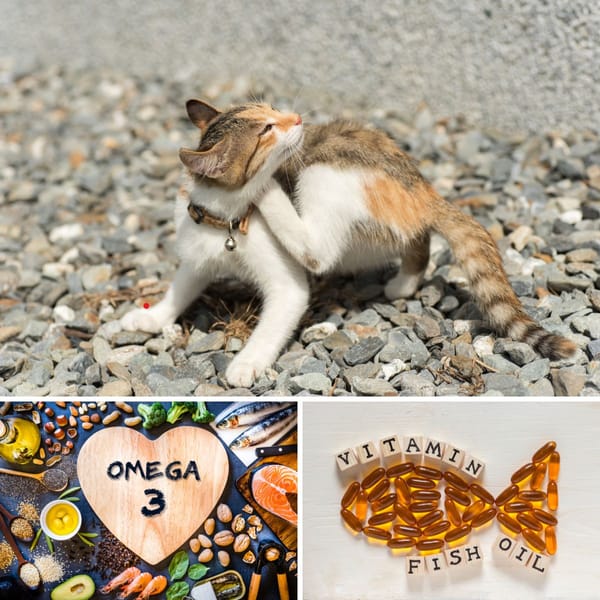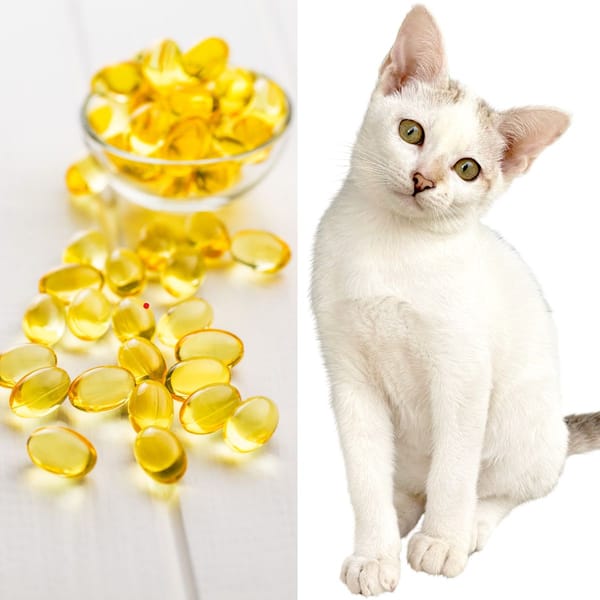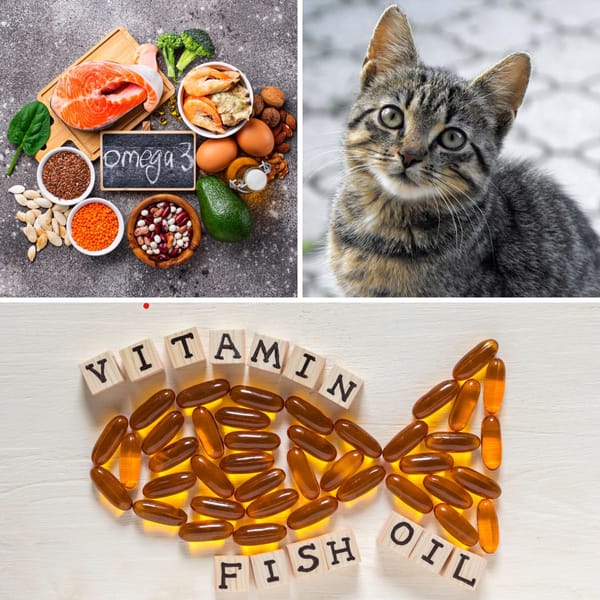Key Takeaways:
- Fish oil can be beneficial for cats, providing essential fatty acids that support various aspects of their health.
- It's important to choose high-quality fish oil supplements and to administer the correct dosage to avoid potential risks.
- Consultation with a veterinarian is crucial before adding fish oil to your cat's diet, especially for cats with pre-existing health conditions.
Cats are known for their love of fish, but when it comes to their health, is fish oil just as beneficial? As pet owners, we constantly seek ways to improve our furry friends' overall health and well-being. Fish oil supplements have been touted for their health benefits in humans, but what about our feline companions? Let's dive into the world of fish oil for cats and discover how it can contribute to their optimal health.
Understanding Fish Oil and Its Components
Fish oil is rich in omega-3 fatty acids, specifically eicosapentaenoic acid (EPA) and docosahexaenoic acid (DHA). These essential fatty acids are not produced naturally by cats, so they must be obtained through their diet. Omega-3s are known to play a crucial role in brain development, cognitive function, and reducing inflammation, making them a potentially valuable addition to a cat's diet.
The Benefits of Fish Oil for Cats
Supporting Kidney Function in Felines
Kidney disease is a common ailment in older cats. Fish oil supplementation can help retain essential proteins and reduce inflammation, which may aid in managing kidney disease. The anti-inflammatory effects of EPA and DHA can also help improve blood flow to the kidneys, potentially slowing the progression of failing kidneys.
Enhancing Skin and Coat Health
Many cats suffer from dry, flaky skin and dull coats. Adding fish oil to a cat's diet can promote healthy skin and a shiny coat due to its ability to structure cell membranes and provide hydration. For cats with skin allergies, fish oil's anti-inflammatory agents can help alleviate itching and promote faster healing of the skin.
Joint Health and Mobility
Arthritic joints and joint pain are not uncommon in senior cats. Fish oil's ability to reduce inflammation can be particularly beneficial for maintaining joint health and improving mobility. Regular fish oil supplementation can help ease the discomfort associated with joint disease and enhance the quality of life for older cats.
Heart Health and Circulation
Fish oil has been linked to heart health in humans, and the same applies to cats. The omega-3 fatty acids in fish oil can help prevent blood clots and support a healthy cardiovascular system. For cats at risk of heart disease, fish oil can be a proactive measure to maintain heart health.
Cognitive Function and Brain Health
DHA is vital for brain development and maintaining cognitive function, especially in kittens and senior cats. Fish oil supplements can provide the necessary DHA to support brain health and potentially delay cognitive decline in aging felines. Sure, let's expand the article with two new sections incorporating the specified keywords.
Fish Oil as a Complement to a Cat's Diet
When considering adding fish oil to your cat's diet, it's essential to view it as a complement to their regular meals. Cats require a balanced diet high in protein, and while fish oil is rich in omega-3 fatty acids, it's not a standalone solution. It's best used as one of several nutritional supplements to enhance your cat's overall health. Including fish oil can support various bodily functions, but it should be integrated thoughtfully to maintain dietary balance and avoid any nutritional excesses or deficiencies.
Liquid fish oil can be a convenient option for pet owners looking to supplement their cat's diet without much fuss. It's easier to mix into wet food and can be more palatable for picky eaters compared to capsules or pills. However, it's crucial to store liquid fish oil properly, as exposure to high temperatures and air can cause it to spoil, reducing its effectiveness and potentially leading to an inflammatory response if rancid oils are ingested. Always check the product's storage instructions to ensure you're providing the best fish oil for your furry friend. Sure, let's expand the article with two new sections that will provide valuable information to cat owners considering fish oil supplements for their pets.
Fish Oil's Impact on a Cat's Diet
When we talk about a cat's diet, it's all about balance and ensuring they get the right nutrients. Fish oil, rich in omega-3 fatty acids, can be a fantastic addition. These fatty acids are not produced by cats' bodies, so they must come from their diet. Adding fish oil to your cat's meals can help ensure they're getting a good dose of these essential nutrients. It's like hitting a dietary jackpot for your furry friend, giving them the building blocks for a healthy body.
But here's the thing – it's not just about pouring oil over their kibble. You've got to be mindful of the balance. Too much of a good thing can throw off the harmony in their diet. Fish oil should complement the existing nutrients in your cat's food, not overshadow them. Think of it as a dietary symphony where each nutrient plays its part, and omega-3s are the harmonious strings section that brings it all together.
The Synergy of Fish Oil and a Cat's Skin Health
Now, let's chat about your cat's skin – their largest organ and a prime indicator of their overall health. Omega-3 fatty acids, especially EPA and DHA, are like the secret sauce for maintaining healthy skin. They serve as anti-inflammatory agents, battling the pro-inflammatory substances that can lead to skin issues. It's like having a tiny army of wellness warriors right there in your cat's skin, fighting off the bad guys and keeping things calm and soothed.
But wait, there's more! Fish oil also contains linoleic acid, another skin superhero. This unsung hero works to strengthen the skin barrier, locking in moisture and keeping out irritants. Imagine it as an invisible shield that helps your cat's skin stay hydrated and resilient. And the best part? A shiny, soft coat is often a happy side effect of this skin-loving nutrient combo. So, not only is your cat's skin getting a boost, but they're also going to look fabulous – talk about a win-win!
These sections should seamlessly integrate into the existing content, providing readers with a deeper understanding of how fish oil can benefit their cat's diet and skin health. Remember, always consult with a vet before making any changes to your pet's diet or supplement regimen.
The Role of Fish Oil in Feline Inflammation and Immunity
Fish oil is renowned for its anti-inflammatory effects, which can be particularly beneficial for cats suffering from conditions that cause chronic inflammation. The omega-3 fatty acids in fish oil, including EPA and DHA, act as anti-inflammatory agents that can help reduce the production of pro-inflammatory substances. This can lead to improved comfort and mobility, especially for cats with tender joints or those prone to conditions like arthritis. Regular supplementation can help maintain a healthy inflammatory response, providing relief and improved quality of life.
Moreover, the immune system of cats can also benefit from the inclusion of fish oil in their diet. The fatty acids not only aid in managing inflammation but also support overall immune health. Veterinary medicine often recognizes the importance of nutritional support in disease prevention and management, and fish oil is a prime example of this. However, it's important to consult with a professional from an animal medical center or your local vet to tailor the dosage to your cat's specific needs and risk factors. They may recommend third-party tested products to ensure purity and efficacy, especially since smaller fish sources tend to have lower risks of heavy metal toxicity.
Choosing the Right Fish Oil for Your Cat
Quality Matters: Not All Fish Oils Are Created Equal
When looking to buy fish oil for your cat, it's essential to choose a high-quality product. Cold-pressed fish oil is often recommended as it is processed at lower temperatures, preserving the integrity of the fatty acids. Third-party testing for purity and the absence of heavy metals is also crucial to ensure the safety of the fish oil supplement.
Dosage and Administration: Getting It Right
The correct dosage of fish oil is dependent on your cat's body weight and overall health. It's important to follow the recommended dosage provided by the manufacturer or your veterinarian to avoid any adverse effects. Fish oil can be administered in liquid form, mixed with wet food, or as a fish oil capsule.
Potential Risks and Considerations
The Risk of Heavy Metal Toxicity
Larger fish tend to accumulate higher levels of heavy metals, which can be toxic to cats. Opting for fish oil products derived from smaller, coldwater fish can minimize the risk of heavy metal toxicity. Always check for certifications and lab results that indicate the purity of the fish oil.
Balancing the Diet: The Role of Vitamin E
Fish oil supplementation can lead to a depletion of vitamin E in the body. To counteract this, it's important to ensure that your cat's diet is high in vitamin E or to provide a vitamin E supplement alongside fish oil to maintain a balanced nutritional profile.
Specialized Care for Cats with Pre-existing Conditions
Cats with inflammatory bowel disease, joint disease, or other inflammatory conditions may benefit from the anti-inflammatory effects of fish oil. However, specialized care and consultation with a veterinarian are necessary to tailor the supplementation to the cat's specific needs and to monitor for any adverse reactions.
The Verdict on Fish Oil for Cats
Fish oil can offer many benefits for cats, from improving coat health to supporting kidney function and reducing inflammation. However, it's not a one-size-fits-all solution. Pet owners must consider the quality of the fish oil, the appropriate dosage, and their cat's individual health needs.
Summary
Fish oil for cats can be a valuable addition to their diet, providing essential fatty acids that support kidney function, skin and coat health, joint mobility, heart health, and cognitive function. However, it's important to choose high-quality fish oil supplements, administer the correct dosage, and consult with a veterinarian, especially for cats with pre-existing health conditions. By doing so, pet owners can help their feline friends achieve optimal health and well-being.
FAQ Section
Q: Can fish oil cause any side effects in cats? A: While fish oil is generally safe for cats, it can cause side effects if administered in incorrect dosages, such as diarrhea, vomiting, or delayed wound healing. Always consult with a veterinarian before starting fish oil supplementation.
Q: How do I know if my cat needs fish oil in their diet? A: Signs that your cat may benefit from fish oil include dry skin, a dull coat, joint pain, or cognitive decline. However, it's best to consult with a veterinarian to determine if fish oil is appropriate for your cat's specific health needs.
Q: Can I give my cat human fish oil supplements? A: It's recommended to use fish oil products specifically designed for cats to ensure the correct dosage and purity. Human supplements may not be suitable and could contain ingredients that are harmful to cats. Always check with a veterinarian before giving your cat any human dietary supplements.







